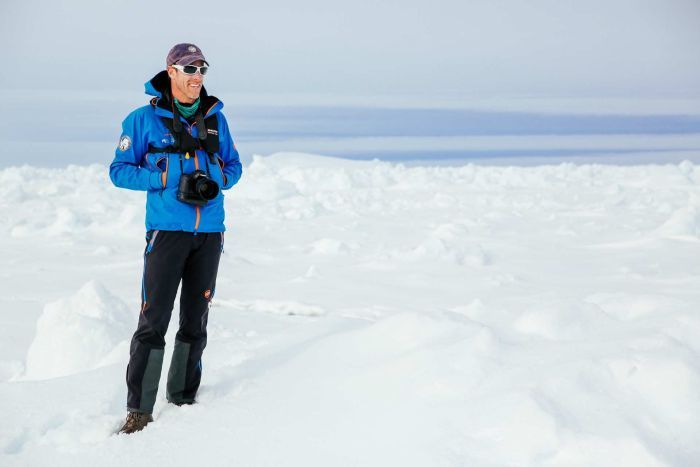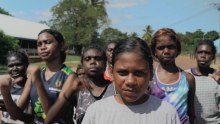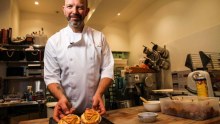How one man's tragic climbing adventure changed his life
Posted
Life has never been the same for Brisbane doctor Andrew Peacock since facing a deadly struggle on top of New Zealand's highest mountain almost 18 years ago.
He was descending Mount Cook in December 2001 with good friend and fellow climber Justin McDonald when things went horribly wrong.
Mr McDonald's abseiling equipment failed and he slipped and fell 30 metres down a crevasse.
Despite desperate attempts by Dr Peacock to save his friend, Mr McDonald died in Christchurch Hospital after he was buried in snow for about eight hours after the fall.
"I was the only person there with him, he was my partner, we were climbing together and he died and I didn't — and that was a big deal," Dr Peacock said.
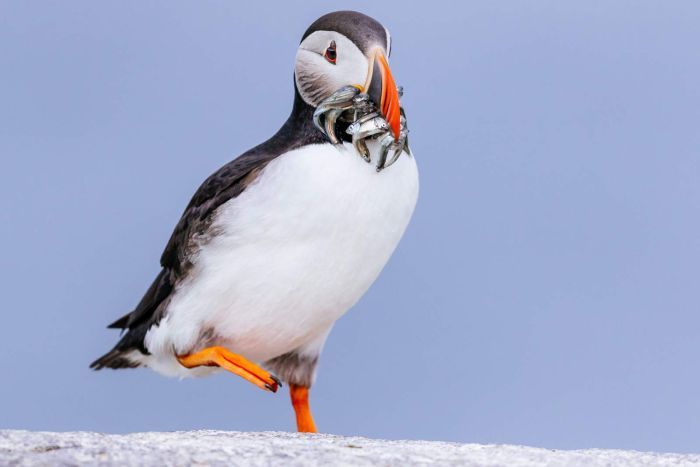 Photo:
A puffin feeding on small fish on Vigur Island in the remote Westfjords of Iceland. (Supplied: Andrew Peacock)
Photo:
A puffin feeding on small fish on Vigur Island in the remote Westfjords of Iceland. (Supplied: Andrew Peacock)
"I was back working in the emergency room three days later, as if life was continuing as normal.
"The mountains are where danger happens, it strikes sometimes without warning."
With the tragedy bringing into sharper focus what mattered most in life, Dr Peacock decided to make changes in his life.
Since then, he has managed to combine his love of medicine with travelling into the wilderness taking photographs.
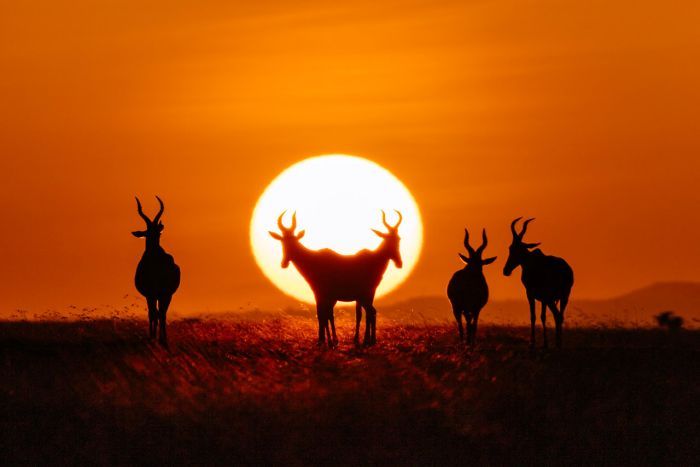 Photo:
A herd of Hartebeest, a type of African antelope, at dawn in the Ol Pejeta Convervancy in Central Kenya.
Photo:
A herd of Hartebeest, a type of African antelope, at dawn in the Ol Pejeta Convervancy in Central Kenya.
For six months of the year, the 52-year-old works in the busy emergency department of Brisbane's Greenslopes Private Hospital.
Dr Peacock's top photographic tips
- Light: The thing that I emphasise for people to think about is light, understanding light, where's it coming from and how can you use it to your best advantage for an image.
- Composition: Is really important and thinking about what to exclude from the frame as much as what to include. Often the photographs that give the most visual impact are often very simple and don't have many elements in the frame but they speak powerfully. Composition is very important.
- Moment: Looking waiting and being patient for a particular moment to capture the best picture. Watch and wait for a moment to happen, especially with wildlife photography.
For the other half of the year, he travels to some of the most remote places in the world as an expedition leader and adventure photographer.
Dr Peacock grew up and studied medicine in Adelaide, but discovered a love of the outdoors and rock climbing while doing surgical training in California in the early 1990s.
"That was the end of my traditional medical career because I just decided that this was an awesome activity and it gave me an excuse to explore amazing mountainous parts of the world," he said.
"It just opened my eyes to the outdoor world."
He took up photography when he worked as a doctor on voluntary assignments in Nepal and India.
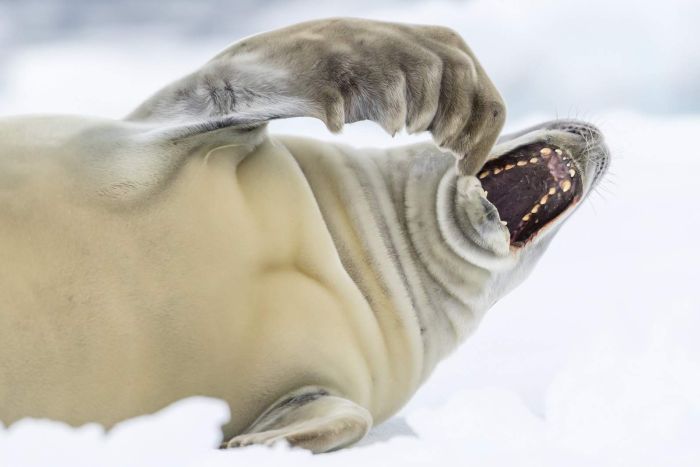 Photo:
A crabeater seal, which lives in the pack-ice surrounding Antarctica. Despite their name, they eat krill not crabs. (Supplied: Andrew Peacock)
Photo:
A crabeater seal, which lives in the pack-ice surrounding Antarctica. Despite their name, they eat krill not crabs. (Supplied: Andrew Peacock)
"I worked for the Tibetan government-in-exile in Dharamshala in northern India in 1996, and I was in this amazing environment and I was keen to document it," Dr Peacock said.
While working as a volunteer in the local hospital, he was granted a private audience with the Dalai Lama.
"That was pretty amazing, pretty special.
"He was talking about going to Australia in the near future and we ended up talking about barbecues and how Australia barbecues its national animal.
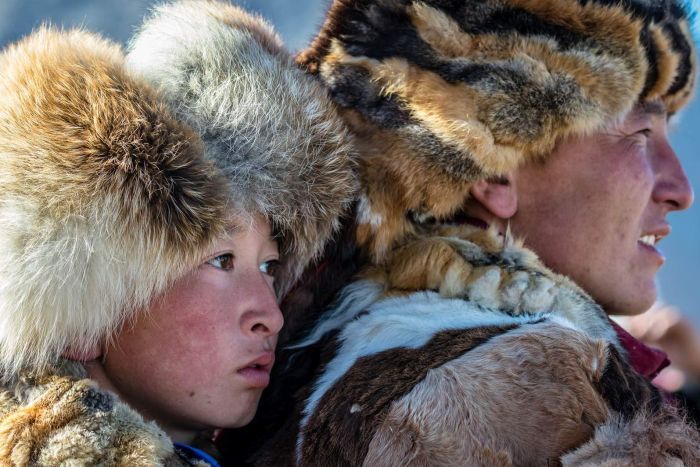 Photo:
Kazakh hunters at the Golden Eagle Festival in the Altai Mountains of Western Mongolia. (Supplied: Andrew Peacock)
Photo:
Kazakh hunters at the Golden Eagle Festival in the Altai Mountains of Western Mongolia. (Supplied: Andrew Peacock)
"So instead of a moment of enlightenment, we spoke about barbecuing the roo.
"I'm not a particularly spiritual or religious person, but that didn't diminish the significance of meeting someone who is quite an incredible person."
Dr Peacock's adventures have since taken him across the globe, his ongoing quest fuelled by the memory of that deadly moment in 2001.
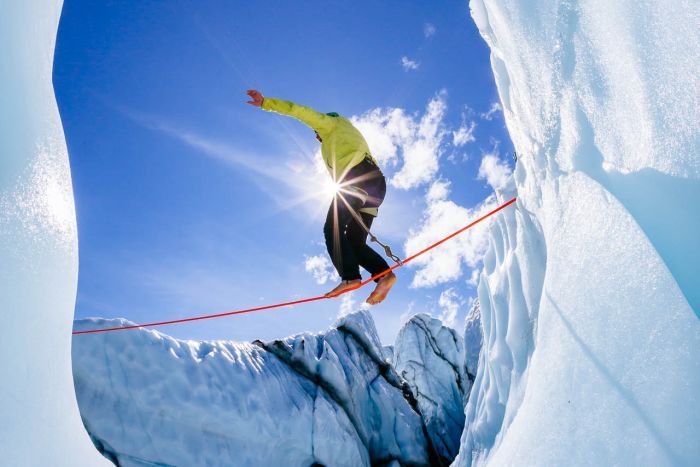 Photo:
A man barefoot slack-lining at Matanuska Glacier in Alaska in October 2017. (Supplied: Andrew Peacock)
Photo:
A man barefoot slack-lining at Matanuska Glacier in Alaska in October 2017. (Supplied: Andrew Peacock)
"Justin's death could so easily have been mine," he said.
"At the time it wasn't a turning point ... I didn't suddenly refocus or change anything, in fact I continued to climb in the mountains for some time afterward.
"Gradually though, I think that event — combined with the constant observation of illness occurring randomly to people I saw through my medical work — simply solidified the attitude to life I was already starting to take.
"I aim for flexibility to choose my own schedule and to spend time doing the things that feel important to me while continuing to try and help others when I am in the emergency room."
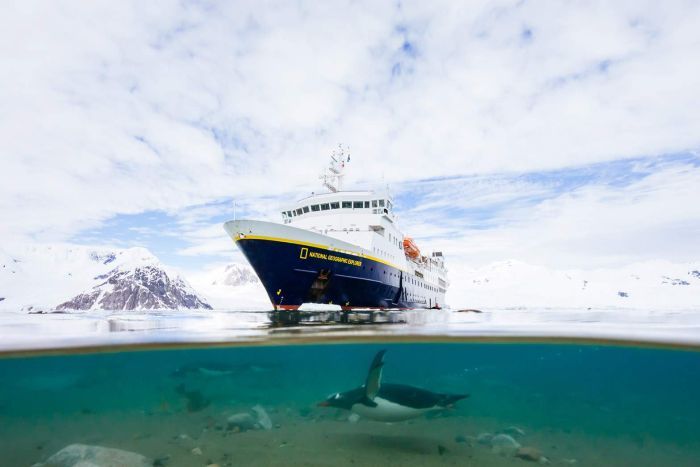 Photo:
A Gentoo penguin beneath the National Geographic Explorer ship at Neko Harbour on the Antarctic Peninsula. (Supplied: Andrew Peacock)
Photo:
A Gentoo penguin beneath the National Geographic Explorer ship at Neko Harbour on the Antarctic Peninsula. (Supplied: Andrew Peacock)
Dr Peacock is presently leading his first expedition aboard the National Geographic Adventure ship in Glacier Bay National Park in Alaska.
"It takes me to some amazing places like Antarctica many times, the Arctic, Mexico, Alaska and Iceland, it's pretty awesome," he said.
"Travel always sounds far more glamorous for those who unfortunately don't get to do it, but getting to experience the world and teach people about photography in those cool parts of the world is a wonderful experience.
"I'm very privileged."
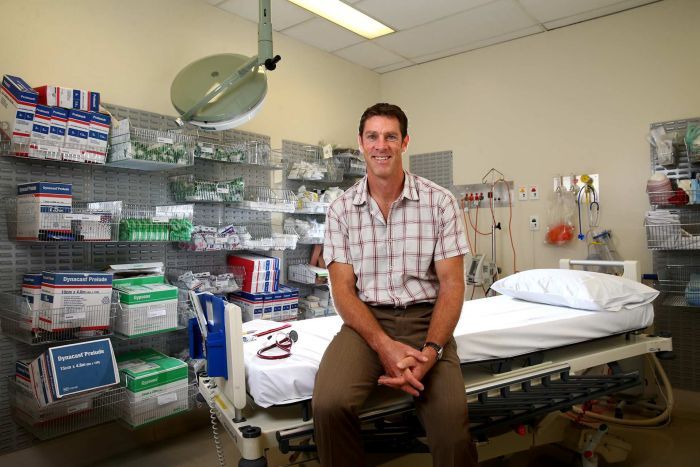 Photo:
Dr Peacock in the emergency room at Greenslopes Private Hospital in Brisbane. (Supplied: Adam Head)
Photo:
Dr Peacock in the emergency room at Greenslopes Private Hospital in Brisbane. (Supplied: Adam Head)
The award-winning photographer is not precious about using expensive camera gear.
He says you can take great pictures with a phone camera.
"Phone cameras do a really good job, mainly if there's good light," he said.
"If the light is not great, you've got a bit more of a challenge with a phone camera but a good way of taking a picture is right there in your pocket."
While many people may be envious of his ability to combine his life's passions, Dr Peacock said he hates the expression that he's "living the dream".
"I think I'm just lucky to have worked things out in a way that works well for me," he said.
"I've always thought that whatever sounds interesting to me is worthwhile pursuing ... if it works out, that's awesome, if it doesn't then I'll move on to do something else."
Topics: environment, photography, arts-and-entertainment, print-media, travel-and-tourism, doctors-and-medical-professionals, australia, qld, brisbane-4000


